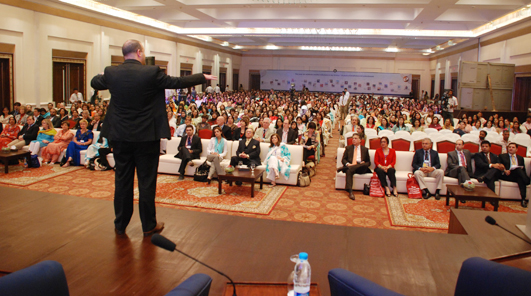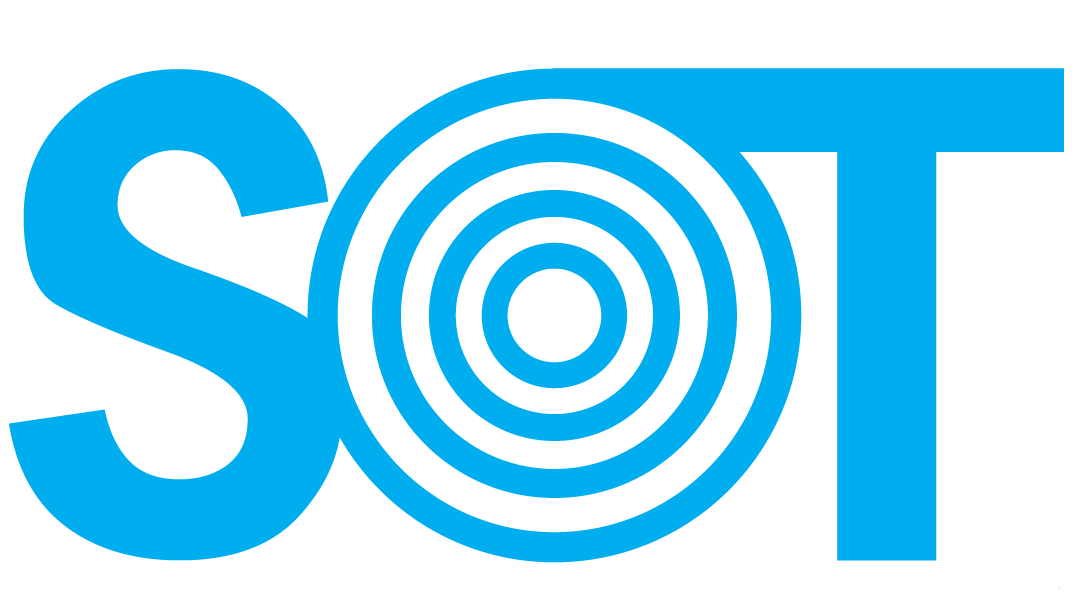Lahore: November 5 and 6, 2010
Freedom to Learn .
Attendees
- Educational Professionals
- Government Representatives
- Non-Governmental Organisation
- Print & Electronic Media
- BSS Directors
- School Group Heads
- Academic Heads
- Manager Training/Academic Support
- Principals
- Head Masters/Mistresses
- Senior Masters/Mistresses
- School Coordinators
- Curriculum & Education Technology Coordinators
- Tutors & Trainers
- Teachers
The ‘Freedom to Learn’ conference was a sequel to a conference held in 2005 titled ‘Towards 2035: The School of Tomorrow’. It brought together scholars, educationists, classroom practitioners, policy makers and experienced professionals, in a two-day conference to reassess conventional beliefs of what constitutes progressive teaching and learning. The aim was to help change the learning experiences of children studying not only at private schools, but in schools at every level. As a platform to introduce new approaches and challenge conventional thinking, attendees were encouraged to explore ways of enhancing learning and improving the overall educational experience. School of Tomorrow: Freedom to Learn was a participant’s conference, including plenaries to set new directions for educators and teachers alike. The conference was segmented in four streams, pertaining to the four most prominent areas within education. Each stream offered parallel sessions in the form of workshops and focus group discussions reflecting upon significant areas that require development.
JOURNEY OF HOPES:  In the last year, the education of thousands of school children had been abruptly halted by the devastating floods that affected Pakistan. Conference attendees explored ways to re-establish educational horizons in these devastated areas, bringing light to the future of Pakistan. It is the spirit of the people of Pakistan that saw them through this latest crisis where 1500 lives were lost and 20 million people were directly affected. The schooling of over one million children had been disrupted, with almost 5,500 schools destroyed or damaged and access roads blocked. The rehabilitation of the flood victims has taken many forms; however, education can and will play a key role in this extended process of recovery.
In the last year, the education of thousands of school children had been abruptly halted by the devastating floods that affected Pakistan. Conference attendees explored ways to re-establish educational horizons in these devastated areas, bringing light to the future of Pakistan. It is the spirit of the people of Pakistan that saw them through this latest crisis where 1500 lives were lost and 20 million people were directly affected. The schooling of over one million children had been disrupted, with almost 5,500 schools destroyed or damaged and access roads blocked. The rehabilitation of the flood victims has taken many forms; however, education can and will play a key role in this extended process of recovery.
The Power of Diversity: New Ways of Teaching and Learning
Reframing Early Childhood Education
Teacher Education for Sustainable Development
Changing Education: Leadership, Innovation and Development

New Ways of Teaching and Learning
Plenary: Breaking Barriers to Learning: An Integrated Approach to Learning and Teaching
Day 1 (Workshops)
| 1. | We have hammers. Now, what can we nail? Norbert Pachler |
| 2. | Inquiry Learning through Integrated Units of Work Kaye Heasman |
| 3. | SOT: A Look Back at Our Journey and Evolution Ayesha Kasuri |
| 4. | Nurturing Creativity Dr. Claude Alvares |
| 5. | Changing the Landscape of Education through Technology Richard Pietrasik |
| 6. | Developing Leaders, Developing Schools Naureen Dogar |
| 7. | Educational Journey through Technology Aslam Sharif |
| 8. | Educational Journey through Technology Aslam Sharif |
Day 2 (Focus Group Discussions)
| 1. | Role of Education Technology in the Curriculum Richard Pietrasik |
| 2. | Project Based Learning – Authentic Learning Activities. Ayesha Kasuri |
| 3. | Fostering Creativity in Classrooms Dr. Claude Alvares |
| 4. | Assessment and eFolios Norbert Pachler |
| 5. | Creativity Across the Primary Curriculum Dr. Catherine Wilson |
| 6. | Educational Journey through Technology Aslam Sharif |
Reframing Early Childhood Education
Plenary: Emerging Strategies in Early Childhood Education
Day 1 (Workshops)
| 1. | The Creation Station: Art and Science in the Early Years Dr. Catherine Wilson |
| 2. | Out of Minds: Learning to be Creative David Bradley |
| 3. | Taking Literacy Outside Susan Waltham |
| 4. | Brain-Based Learning Tom White |
| 5. | Rethinking Curriculum, Pedagogy and Assessment in the Early Years Dr. Martha J. Lash |
Day 2 (Focus Group Discussions)
| 1. | Project Based Learning in Early Childhood Dr. Martha J. Lash |
| 2. | Shaping Early Childhood: Learners, Curriculum and Contexts Tom White |
| 3. | Technology in the Early Years Kaye Heasma |
| 4. | Multifaceted Assessment for Early Childhood Education Susan Waltham |
| 5. | Developing Play for the Early Years David Bradley |
Teacher Education for Sustainable Development
Plenary: Diversity and Innovation in Teacher Education
Day 1 (Workshops)
| 1. | CPD for Excellence in Education: Teachers Make a Difference Tina Hameed |
| 2. | Teachers as Scholars – Building Learning Communities Mary Louise Holly |
| 3. | Models of Professional Development Dr. Fauzia Shamim |
| 4. | Developing Reflective Practitioners Prof. Andrew Goodwyn |
| 5. | Mentoring: A Safe and Supportive Approach Dennis Taylor |
Day 2 (Focus Group Discussions)
| 1. | Building School Based Learning Communities Prof. Andrew Goodwyn |
| 2. | Professional Development for Teachers: Why Do It? What’s Involved? Dr. Fauzia Shamim |
| 3. | How can Teachers See Themselves Differently as a Result of Continuous Professional Development? Mary Louise Holly |
| 4. | School Based Professional Development Tina Hameed |
| 5. | Teacher Induction and Mentoring: School Based Collaborative Programs Dennis Taylor |
Changing Education: Leadership, Innovation and Development
Plenary: Instructional Leadership for School Improvement
Day 1 (Workshops)
| 1. | Distributed Leadership: Sharing Leadership to Build Capacity Dr. Saeeda Shah |
| 2. | Headship: The Power to Change Lives Simon Testa |
| 3. | Developing a Strategy for School Improvement Christine Lynne Blackaby |
| 4. | Learning for All: Building the Learning Community Jude Heaton |
| 5. | Empowering Teachers Anthony Colin Townsend |
| 6. | Developing Leaders, Developing Schools Naureen Dogar |
Day 2 (Focus Group Discussions)
| 1. | Rethinking Strategic Leadership Dr. Saeeda Shah |
| 2. | Monitoring and Self-Review for School Improvement Simon Testa / Saima Rashid |
| 3. | Collegial Approach to Learning and Teaching as the Essence of School Improvement Christine Lynne Blackaby |
| 4. | Leading Change, Raising Standards Jude Heaton |
| 5. | School Based Evaluation: A Dialogue for School Improvement Anthony Colin Townsend |
| 6. | Developing Leaders, Developing Schools Naureen Dogar |
November 5-6, 2010
Conference Location
Pearl-Continental Hotel Shahrah-e-Quaid-e-Azam P.O. Box 983, Lahore
Telephone: 42-36360210
UAN: +92-42-111-505-505
Fax: +92-42-36362760
Email: [email protected]
Website: www.pchotels.com



